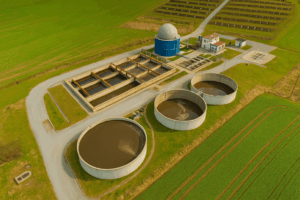By Enersider Desk | New Delhi
The cost of clean energy projects is likely to come down due to the rationalisation of GST rates across the renewable energy value chain to 5% from 12%.

The rationalisation of GST rates, which is effective from September 22, 2025, will make electricity more affordable, directly benefiting households, farmers, industries, and project developers, an official statement said.
A practical example can be seen in utility-scale solar, where the capital cost typically ranges from ₹3.5 to 4 crore per MW. The reduced GST will generate savings of ₹20–25 lakh per MW. For a large 500 MW solar park, this results in a total cost reduction exceeding ₹100 crore, substantially improving the competitiveness of energy tariffs.
With India’s goal to install approximately 300 GW of new renewable capacity by 2030, even a modest 2–3% reduction in costs has the potential to unlock ₹1–1.5 lakh crore in investment capacity. Furthermore, as each gigawatt of solar power avoids roughly 1.3 million tonnes of CO₂ annually, the accelerated deployment facilitated by this GST reform could prevent an extra 50–70 million tonnes of CO₂ emissions each year by 2030.
This policy is anticipated to lower the levelled renewable tariffs, thereby easing the financial pressure on distribution companies (DISCOMs) when procuring electricity. Nationwide, this could lead to annual savings of ₹2,000–3,000 crore in power procurement costs. End consumers will gain from improved access to affordable clean energy, bolstering the long-term sustainability of India’s power sector.






